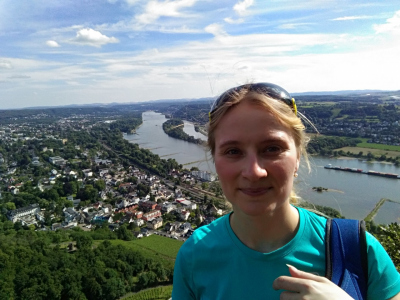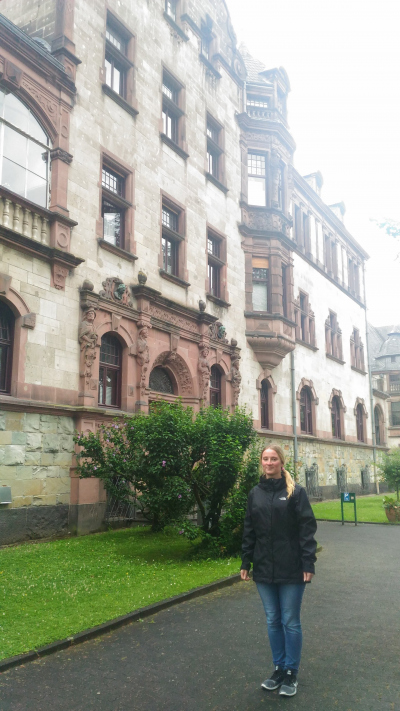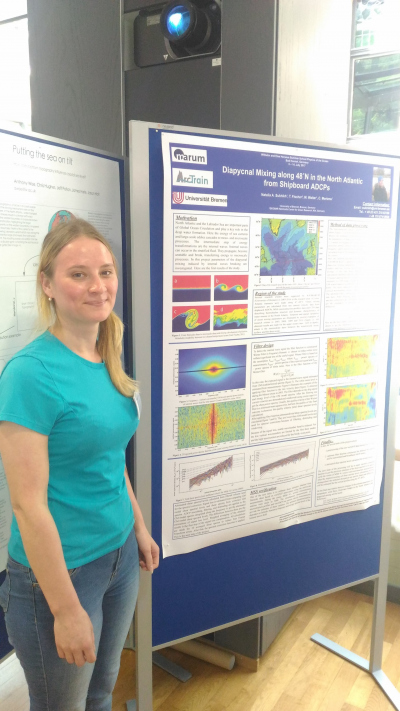- ArcTrain
- Training reports
- WE-Heraeus Summer School on Physics of the Ocean 2017
WE-Heraeus Summer School on Physics of the Ocean 2017
July 9 - July 14, 2017, Bad Honnef, Germany

Summary:
The WE-Heraeus Summer School on Physics of the Ocean 2017 took place in Physikzentrum Bad Honnef (Germany) in July 2017. It was organized by “The Wilhelm und Else Heraeus-Stiftung” and supported by DPG. Aims of the summer school were to provide the basic modern knowledge of the ocean physical processes for the students with different background and give the chance to the participants to create a scientific network and meet new people. Topics of summer school lectures covered the wide range of scientific problems. All students had an opportunity to present the results of their work during the poster session on Tuesday, 11th of July, and get the feedback from lecturers and other participants.
Summer school activities started on Sunday afternoon and finished on Friday afternoon. The welcome meeting and introduction of the summer school were organized by Prof. Dr. M. Visbeck (GEOMAR, Kiel, Germany) and Prof. Dr. D. Marshall (University of Oxford, Oxford, UK). I learned about the history of the summer school, support organizations and invited lecturers.
The program of the weekdays was very intensive. I attended lectures about large-scale ocean circulation, global ocean observing systems, regional oceanography of the Arctic, Antarctic and tropical parts of the World Ocean and ocean biochemistry. As for me, the most important lectures were mesoscale ocean dynamics (Prof. Dr. W. K. Dewar, Florida State University, USA) and ocean mixing (Dr. M. Dengler, GEOMAR, Germany). It’s closely related to the topic of my PhD research. After the lectures, I was able to systemize my knowledge about ocean mixing I’ve got during the first half year of my PhD. It also helped me to understand the ocean mixing in the shallow water regions. In my work, I have sea current velocity measurements in the shallow water parts of the North Atlantic. And it was a problem to understand how I can estimate the parameters of the diapycnal mixing there. The process of internal wave transformation because of the depth limit was described during the lecture of Dr. M. Dengler. I can apply this approach in future studies.
The poster session was also very interesting and important part of the summer school. I had discussions with the students who are also working on the same problem as mine. I found out a lot of new things about ocean modeling of small scale processes (mixing and turbulence) and about working with sADCP during the research cruises. It allowed me to broaden my scientific outlook and could be useful in my field work. Also, it was very interesting and fun to speak with students whose work is far away from mine. I learned many interesting things about climatological studies, ecological researches, ocean modeling and so on.
At the end, I have to say about social activities of the summer school. We had hiking, official dinner and group work on “Super Problem”. It was fun and useful and allowed me to get the experience of the team working, see the amazing valley of the Rhine River and meet new interesting people.
So, the WE-Heraeus Summer School on Physics of the Ocean 2017 was very interesting for me and very important for my PhD studies. I’d like to thank ArcTrain for the financial support of my travel.
Natalia Sukhikh




